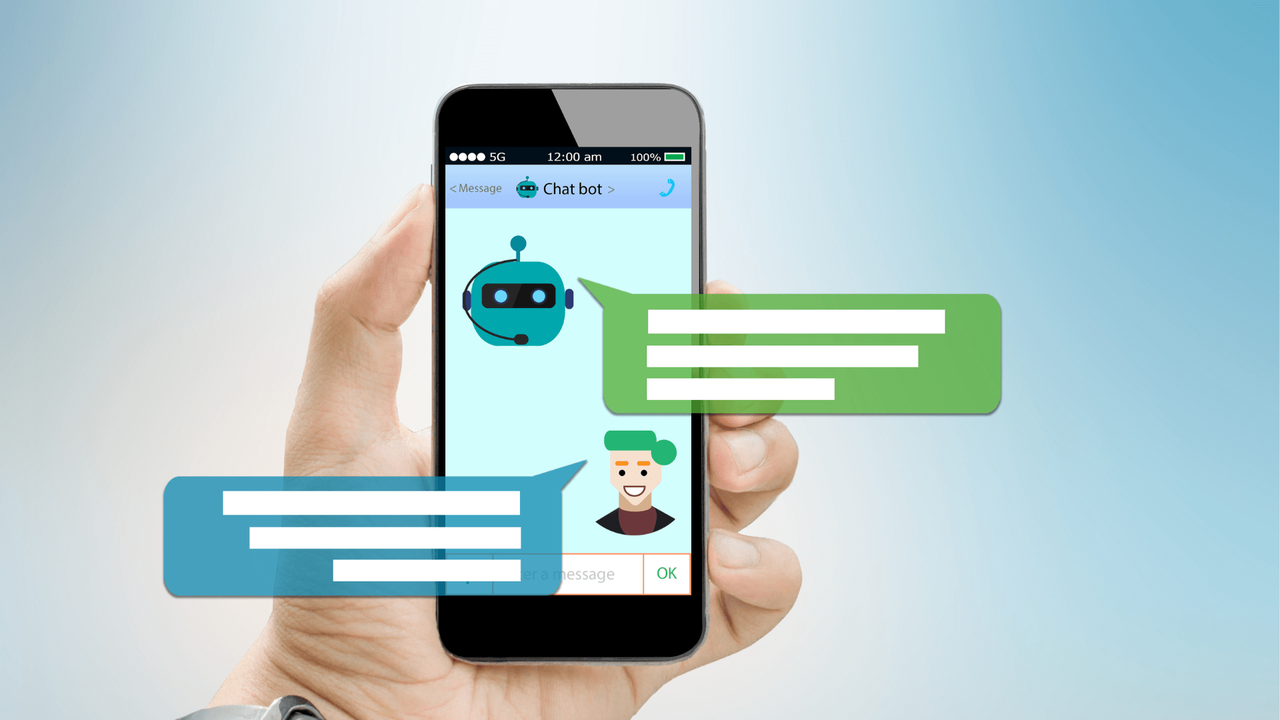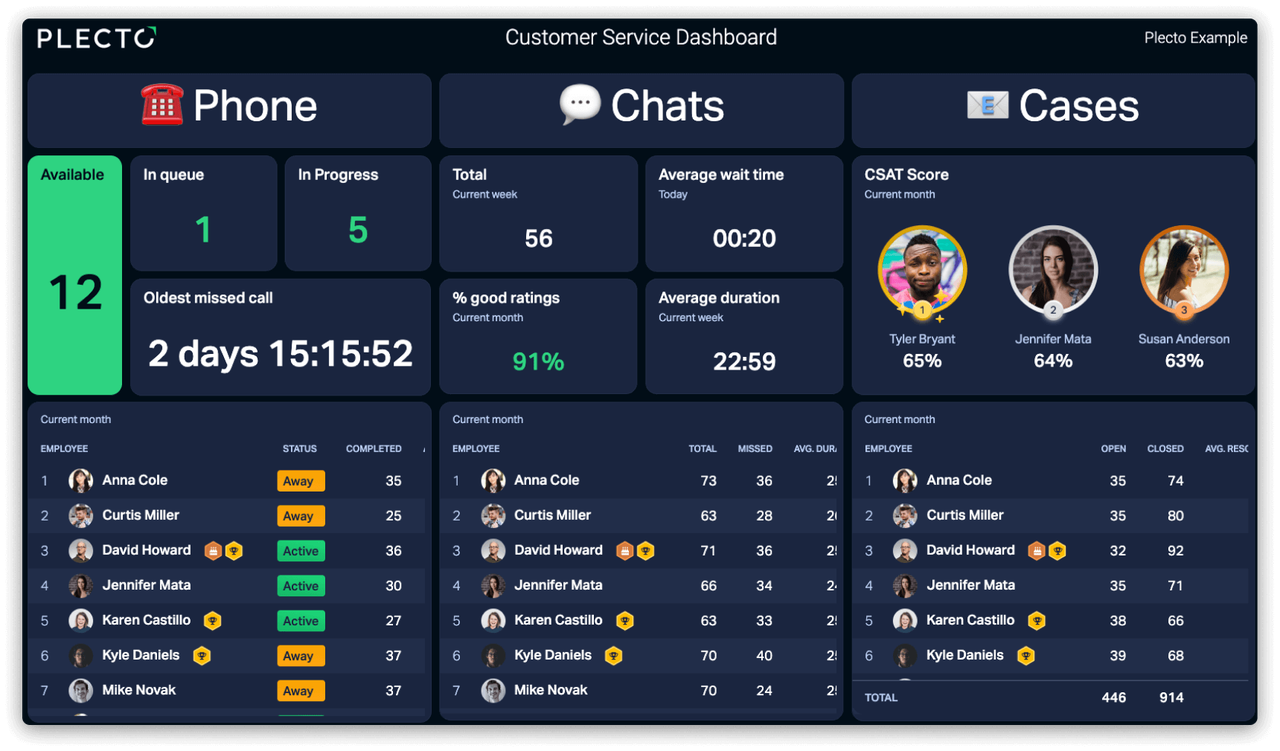There’s little doubt that companies are facing more pressure than ever to provide world-class customer service if they expect to thrive in the future. 58% of customers say that they have higher expectations for customer service than before the pandemic, and many experts agree that COVID-19 will continue to shape customer service trends in 2023 – including the use of AI in customer service.
Customer service often accounts for a large chunk of a company’s operating budget. In the current economy, customers are keeping a close eye on their spending and businesses face the conundrum of providing outstanding customer service while keeping costs to a minimum. In response, many companies are discovering the benefits of using AI in customer service to shorten response times, improve customer satisfaction, cut costs – and more!
What is AI in customer service?
While AI isn’t meant to replace customer service reps, it can greatly reduce the demands on live staff while enabling companies to provide better service at a lower cost than was previously possible. AI tools include things like chatbots, self-service modules, voice-activated assistants, and predictive analytics – all of which can provide quick, accurate, and personalized support without the need for human intervention.
3 Benefits of Using AI in Customer Service
Many companies are seeing firsthand how using AI in customer service can improve customer satisfaction – and in turn, customer loyalty. Building customer loyalty is especially important in today’s economy, and implementing AI is an excellent tool to help in this endeavor. For more loyalty-building ideas, check out our ultimate guide to customer loyalty.
Build your first dashboard.
Start your 14-day free trial today
Here are 3 key benefits of using AI in customer service:
1. Quick and 24/7 Support
Companies that use AI in customer service can provide around-the-clock support on a shoestring budget. AI-powered chatbots can provide instant answers to common inquiries whenever customers need them. But the power of AI isn’t exclusive to self-service support tools. AI can quickly analyze incoming inquiry data to filter out the most pertinent information or even suggest answers to help customer service reps deal with customer inquiries faster than their non-AI-supported counterparts.
2. Cost Savings and Better Staff Retention
The start-up costs for AI-powered customer service solutions are surprisingly low – and AI-powered support tools can significantly reduce labor costs and demands on staff by addressing common customer inquiries. A underrecognized benefit of AI is improved employee retention, which can yield equal or even greater cost savings when compared to overall labor costs. Harvard Business Review reports that it costs between 100% and 300% of the employee’s annual salary to fill a vacant position – and it typically takes eight months for a new employee to reach full productivity. These expenses and lost productivity can really add up in a department like customer service, which has a turnover rate that’s 1.3 times the average of other departments. Increased automation is proven to reduce stress and burnout among call center staff, leading to better retention and reduced hiring costs while improving customers’ perceptions of the service they receive.

3. Natural Language Processing (NLP)
Unlike the first two tools on our list, which are customer-facing, NLP is internally focused. These tools transcribe communication across channels and analyze the resulting data to provide insights companies can use to improve customer service – or more broadly, the overall customer experience. As companies collect more and more customer data, NLP is poised to save companies a lot of time and money while empowering them to make the most of the data they collect. Many companies have begun mining this data to get a better understanding of customer expectations and segmentation to help them improve personalization (e.g., promotions, special offers) based on the customer’s previous interactions across all support channels (e.g., chatbots, self-service tools, phone calls, emails).
Some companies are using a derivative of this technology to train their reps by simulating real-life situations based on past interactions with customers. Management can use these simulations to assess each employee’s performance in the given situations and use them as a training tool to sharpen their skills.

4. Predictive Behavior Analysis
Another behind-the-scenes application of AI in customer service is predictive behavior analysis, which can help companies predict customer inquiry volume and types. This information can guide management in scheduling the right customer service resources at the right times. Having the appropriate resources on hand can cut labor costs while reducing wait times and ensuring that the right competencies are available to provide knowledgeable and efficient support. Accurately forecasting support demands can enable companies to improve customer satisfaction at the lowest possible cost.
Visualize the Benefits of Using AI in Customer Service
Plecto integrates with the most popular CRM and support systems to give you a full overview of how your support team is performing, making it easier to track the benefits of using AI in customer service. Once you’ve implemented one or more AI tools, use Plecto’s customer service dashboards to track the results by visualizing key customer service metrics in one place.
To help with employee retention, Plecto includes performance-driving features like leaderboards, contests, and instant notifications. These gamification elements are proven to help keep customer service reps motivated, engaged, and satisfied in their jobs. Check out this article to learn why gamification works and discover five ways to use call center gamification to improve customer service.
Sign up for a free 14-day trial and see how Plecto and AI can support you in providing better service at a lower cost.




